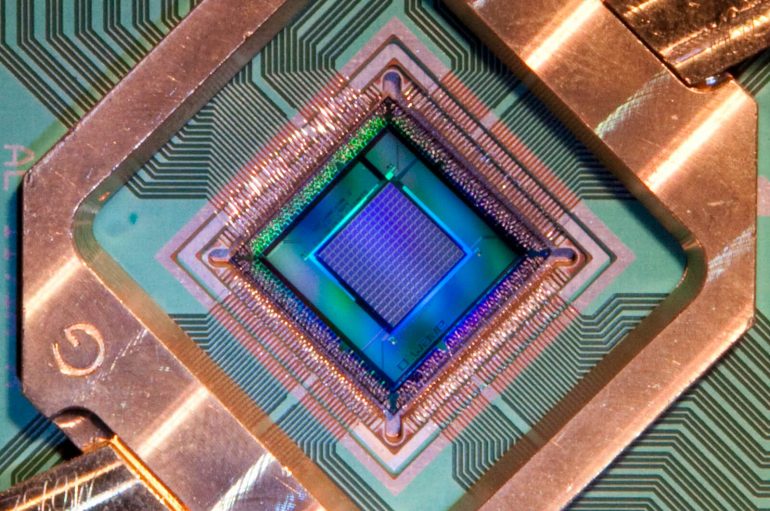AI Nation is a longform series dedicated to showcasing Canada’s artificial intelligence talent and their work.
As AI eats the world, a hidden battle is underway for the future of computing. Tech giants are fighting to be the leader in quantum computing — a game-changer that will transform how the world solves problems.
Canada has quietly invested in quantum computing over the last two decades, providing a unique edge when paired with our homegrown AI talent. But can we hold on?
In June of last year, Toronto-based quantum computing startup Xanadu Quantum Technologies announced a $32 million funding round from Georgian Partners and OMERS Ventures, two of Canada’s largest venture capital investors.
The deal represented the first quantum investment for both firms, with the two betting on Xanadu’s unique approach to building a quantum computer. While many companies must use chips housed within extremely cold temperatures to perform calculations, Xanadu’s method uses particles of light to perform computations at room temperature. The goal is to create technology that can build quantum computers more quickly and cheaply.
“If you told me two years ago that we would have a company the size of Xanadu that was funded almost entirely by Canadian investors, I wouldn’t believe you,” said Khalid Kurji, senior venture manager at the Creative Destruction Lab (CDL) in Toronto, of which Xanadu is an alumnus.
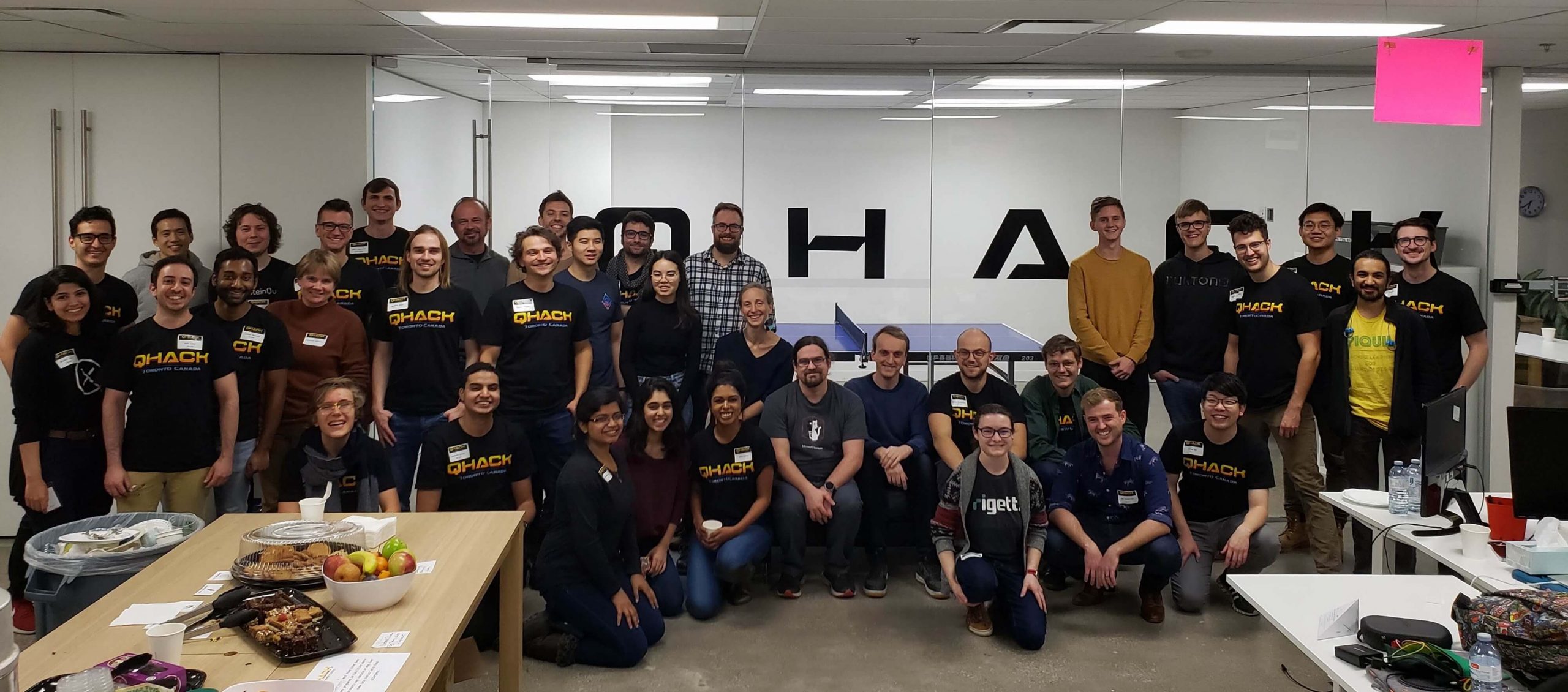
Xanadu is only the latest product of Canada’s forward-thinking investments in quantum computing; in the past decade alone, the government has made over $1 billion in investments in this area, and McKinsey and Co. recently ranked Canada fifth globally in total annual expenditures on quantum science.
At the developing intersection between quantum computing and machine learning, Canadian researchers are investigating how quantum computers can speed up machine learning tasks, or how machine learning algorithms can help quantum computers perform better.
“It’s really taken off in the last three or four years,” said Nathan Killoran, Xanadu’s quantum machine learning (QML) lead. “The direction is clear. But it’s still very early; there’s still lots of discoveries to be made.”
With a global quantum arms race heating up, and the field slowly converging with AI, Canada is set to play an important role in quantum computing. A handful of industry players and research labs have laid the foundation to establish Canada as a global quantum leader, matching the country’s emergence as an AI hotspot: decades of patient work charting an unknown technology, until breakthrough discoveries created an attractive talent and IP base.
“My personal opinion is that we should take the lessons learned from machine learning: you have hardware available, you have some ideas, but you need to crowdsource the innovation to put those ideas in the hands of everyone,” said Killoran.
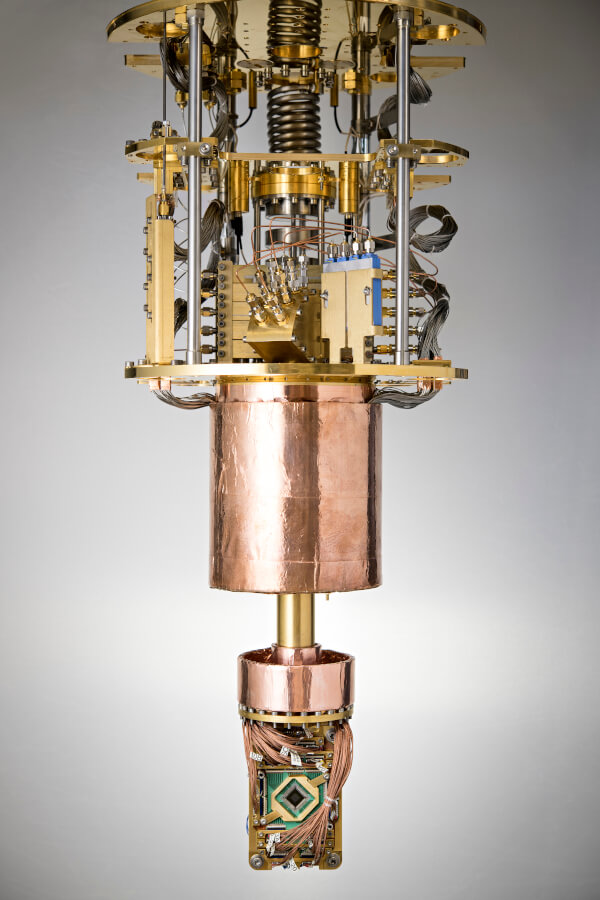
WHAT IS A QUANTUM COMPUTER?
According to the Institute for Quantum Computing, quantum computers harness quantum mechanics to process information. Classical computers use bits encoded as 0s and 1s, while quantum computers use quantum bits — qubits — that can be in multiple states at the same time, called a superposition state. This means that some calculations that can take billions of years for classical computers to perform can be exponentially reduced by quantum computers.
With quantum computing, the hope is to solve problems in fields that have large datasets that can be too complex for classical computers to process.
There are a few reasons why quantum computing is challenging to achieve. At the moment, scientists can’t get qubits to behave how they want them to. Any external disturbance, like those from cosmic rays or magnetic fields, causes qubits to fall out of their quantum state. The application of quantum tech still lags behind that of classical computers.
Researchers aren’t sure exactly how quantum computers will change our world — just that their power can one day help them solve extremely complex problems.
“Quantum mechanics is able to generate more information than all of the particles that are in the visible universe,” said Estelle Maeva Inack, a postdoctoral fellow at the Perimeter Institute in Waterloo. Her work applies machine learning to quantum physics problems, which have extremely large datasets. “When we look at how data has changed the landscape of technology to AI, why won’t it also change the landscape of quantum physics if we apply to those AI algorithms to quantum data?”
THE EARLY BIRD GETS THE QUBIT
In recent years, the US and China have ramped up their quantum investments in an effort to lead the quantum race, but Canada’s investments began long before.
In 2002, Research in Motion founder Mike Lazaridis and his wife Ophelia invested more than $3 million to help create the Institute for Quantum Computing (IQC) at the University of Waterloo—15 years before China and the U.S. dedicated investment in the area. Following investments from the Lazaridis family exceeding $100 million since 2002, the lab is now home to over 200 researchers.
Around the same time, researchers in Calgary were inspired to augment their quantum computing work with machine learning. In 2003, Barry Sanders, the current director of the University of Calgary’s Institute for Quantum Science and Technology, saw a lecture from reinforcement learning pioneer Rich Sutton, who had just arrived in Canada to conduct research in Edmonton. It would only be a few years later that Sanders would realize how these methods could augment quantum computers.
“It’s a very Canadian area,” Sanders said of reinforcement learning. “Quantum computers aren’t quite good enough yet to be able to deliver the performance required to be scalable. The idea is to use various machine learning techniques, including reinforcement learning, to have smarter ways to optimize performance in the quantum computer.”
Before IQC and its Calgary counterpart, there were Canadians making bets on this emerging but promising technology. In 1999, Geordie Rose and Haig Farris launched D-Wave Systems in Burnaby, BC, promising to build the world’s first commercially available quantum computer. The company — which took an aggressive approach to market its capabilities — faced skepticism from the scientific community for its method of using quantum annealing, with some researchers considering it to not be true quantum computing. Twenty years later, D-Wave is credited for spawning a generation of quantum computing experts in Canada, and counts Lockheed Martin, NASA, and Google among its partners.

Over that time, other Canadian startups have launched, providing an important testbed for quantum computing technology. In 2017, Vancouver-based 1QBit raised $45 million from Fujitsu, the same year it announced a partnership with the Japan-based tech equipment company focused on combinatorial optimization, the process of finding an optimal object in an extremely large dataset. Alongside 1QBit, Kitchener, Ont.-based Quantum Benchmark, which works to optimize quantum computer performance, was named part of IBM’s quantum computing program in 2018, and integrated its software into Google’s quantum computing framework later that summer.
“What’s really interesting about quantum computing is that it opens up the possibility for more powerful machine learning models to become feasible and practical,” said Jeremy Hilton, D-Wave’s senior vice-president of technology and applications, and one of the company’s early employees.
One use case for D-Wave’s technology is image classification in healthcare models, using quantum machine learning to help process the data that comes out of particle colliders.
“To detect objects in medical images, you need, typically, two doctors to look at that data. So it’s very expensive to label those things,” Hilton said of the healthcare use case. “So we end up with lots of data, but much less curated data. Quantum computing has an ability to build a profitable distribution.”
CANADA’S COMMERCIALIZATION QUAGMIRE
Canada, generally, has a strong reputation for research; recently, seven Canadian universities ranked among the top 200 “research-intensive” universities in the world, with the University of Toronto in the top 20.
However, a major step in taking research to the next level is commercializing it, an area that Canada typically lags behind, and one that has plagued the country’s AI work in the past. A 2019 report from Jim Balsillie’s Centre for International Governance Innovation noted that less than 100 machine learning patents developed in Canada between 2007 and 2017 have remained in the country. But there are institutions trying to take those lessons and keep our quantum inventions close to home.
“We sell our IP, our ideas, our AI research before it’s in the market. If you sell it then, you sell it for as cheap as it could be.”
– Jim Hinton, Own Innovation
The University of Toronto’s Creative Destruction Lab has been tackling commercialization challenges since 2012. With labs across the country, the incubator has streams in areas like AI, energy, and blockchain to provide strong researchers and entrepreneurs with the capital and mentorship to take discoveries to market.
In 2017, CDL launched a stream for quantum computing startups, the first of its kind in the world, and the incubator counts tech giants IBM, D-Wave, and Rigetti Computing — which develops quantum integrated circuits for quantum computers — among its technology partners. It gives startups that couldn’t otherwise afford the hardware an important testbed for their products.
Interestingly, CDL launched the quantum program because it felt that it had already fallen behind in leading machine learning, an area in which Canada has a global reputation as home to the world’s second-largest concentration of AI researchers. Two years before its quantum stream, CDL launched a machine learning stream, aiming to take advantage of Canada’s burgeoning machine learning talent.
Within six months, however, Kurji said Silicon Valley had already caught up in machine learning and built a robust ecosystem. The incubator thought about what other areas Canada was ahead of the world, and settled on quantum technology.
“Anyone could have told us then that the hardware and the technology wouldn’t be ready for another four or five years, but we realized four or five years is what we needed to be ahead of the world and get a head start so nobody could catch up,” said Khalid.
Other homegrown companies are taking it upon themselves to give researchers a tech sandbox. Xanadu’s open-source software PennyLane, released in 2018, allows users to run QML algorithms on any available quantum computing hardware. Vancouver-based 1QBit, which is working on quantum computing software and hardware optimization, recently opened an office at the Université de Sherbrooke in Montreal — a key quantum computing hub and the home of the Institut Quantique — to recruit masters and PhD researchers.
These kinds of initiatives also open up the opportunity for important industry connections, who can be corporate partners in an area that’s still highly experimental. Recently, 1QBit was listed as Microsoft’s only software partner on Azure Quantum, which aims to bring its cloud computing software to quantum computers and make them mainstream.
“It’s about getting the whole ecosystem up and standing and feeding into each other, getting piles of different spin-offs and startups, and [getting] movement on the space because the whole world is going to change when this thing comes through,” said Stephanie Simmons, a physicist at Simon Fraser University (SFU) working on building silicon for quantum technology.
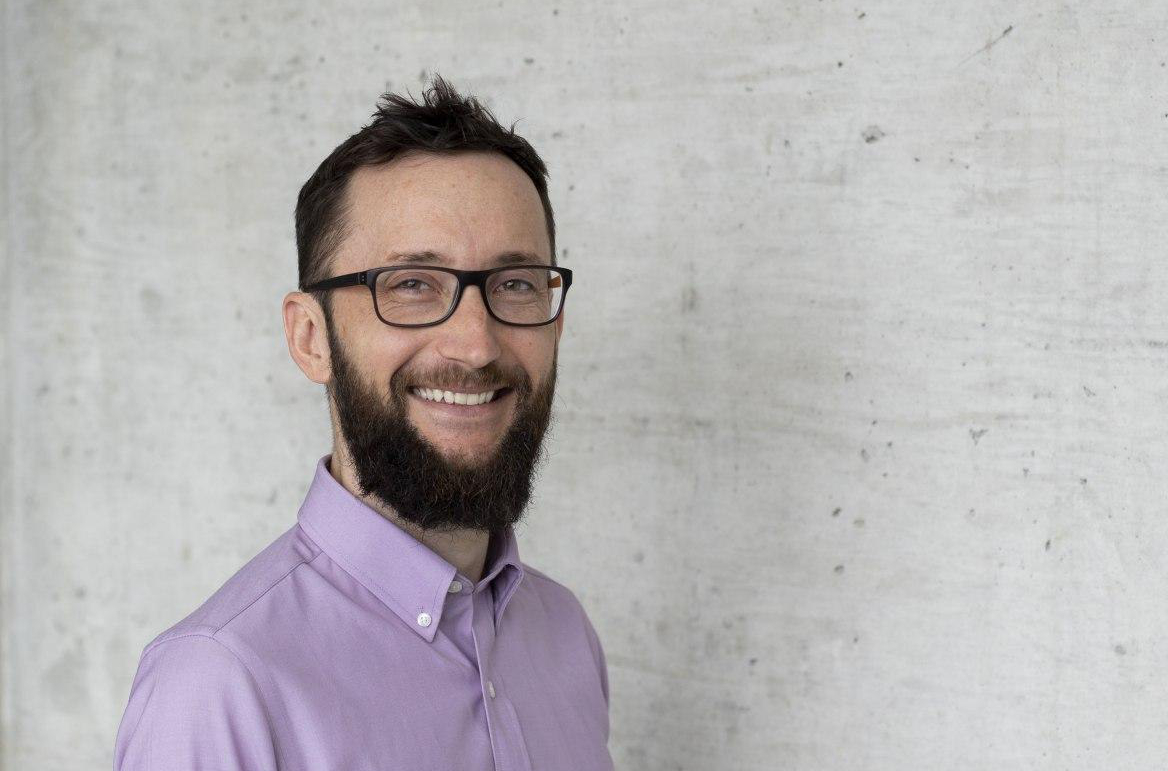
REMEMBERING PETER WITTEK
It is an understatement to say that Peter Wittek has been instrumental in building the quantum machine learning movement in Canada.
Wittek, a University of Toronto professor and academic director of CDL, wrote the first book on quantum machine learning in Canada, effectively pioneering the movement to make Canada a QML epicentre. For CDL’s quantum stream, Wittek designed boot camps, mentored founders, and attracted talent from around the world.
“The better question is what Peter didn’t do, because he did everything for us,” said Kurji when asked how Wittek helped spawn the quantum stream. “Without Peter, there is no program. The ecosystem in Toronto is not what it is without Peter Wittek.”
An avid mountaineer, Wittek went missing in an avalanche in the Himalayas last October, sparking an effort on social media led by friends and family to bring awareness and raise money for search efforts. Speaking with BetaKit almost two months after the accident, Wittek’s brother Gergő Oberfrank, who is based in Hungary, said that he is now using the money to overcome the emotional and legal complications of officially declaring Wittek dead — Oberfrank would have to wait years for the government in Hungary, of which Wittek was a citizen, to recognize this otherwise — and settling his estate. A memorial ceremony was held in Wittek’s honour in February.
“He was the perfect role model of mine, even though we had different motivations in our professions,” Oberfrank said. “It is an extremely difficult situation.”
Wittek used his extensive network both to recruit mentors and attract talent around the world; Mark Fingerhuth, CEO of ProteinQure, said he and his co-founder Tomas Babej moved to Toronto from Germany because of Wittek. ProteinQure, which is aiming to use machine learning and quantum computing to design more complex drugs than can be created with classical computers, benefitted from Wittek’s insight on securing patents, building a business strategy, and research and development.
“He would never turn down any requests from people that he would get emails from; undergrad or grad students, he would always reply, always help them, always be open for collaboration,” said Fingerhuth.
Fingerhuth co-founded the Quantum Open Source Foundation with Wittek, a non-profit that is democratizing the development of quantum computing software. While based in Toronto, the foundation considers itself a global force for moving the industry forward. Recently, the foundation co-organized a hackathon at the Fields Institute with the European Organization for Nuclear Research (CERN) in an effort to open up the field to talent from all backgrounds, including burgeoning physicists and computer scientists.
Katya Kudashkina, founder and CEO of Cultura.AI, said Wittek had always encouraged her PhD research, inspired by Sutton’s work in reinforcement learning. “We worked closely together on model-based reinforcement learning and its application in conversational AI,” she said. “I was literally in a process of submission of one of our papers when the news about Peter being missing broke.
“[He’s] this friend you’ll meet once in a lifetime,” Kudashkina said.
CLASH OF THE TITANS
As Canadian academics inch their way from concept to commercialization, global tech giants are deploying significant resources towards winning the quantum arms race.
Google recently announced a milestone in quantum supremacy — a point where a quantum machine can perform a calculation that a classical computer cannot — when its 54-qubit process performed a calculation in 200 seconds; Google said the same calculation would take a supercomputer 10,000 years. Not long after, IBM challenged Google’s claim, arguing that a supercomputer can actually do the calculation in 2.5 days. Meanwhile, Microsoft’s upcoming Azure Quantum release is a push to become the ubiquitous quantum software platform for scalable quantum computers.
Many of these tech giants are using partnerships across the world, including in Canada, to get a leg up in the quantum fight. For example, Microsoft’s partnered with Toronto-based OTI Lumionics, which is developing new organic light-emitting diode (OLED) displays for the next generation of consumer electronics, to run Microsoft quantum-inspired algorithms on Azure to simulate a fluorescent material without requiring a scalable quantum system. These simulations could have applications for MRI scanning and materials engineering for OLED displays in the future.
“Developing a scalable quantum computer is going to require a global quantum community coming together to innovate across every layer of the quantum stack, and the talent is not all in one place,” said Elisa Garcia Anzano, startups lead on Microsoft’s Quantum Network.
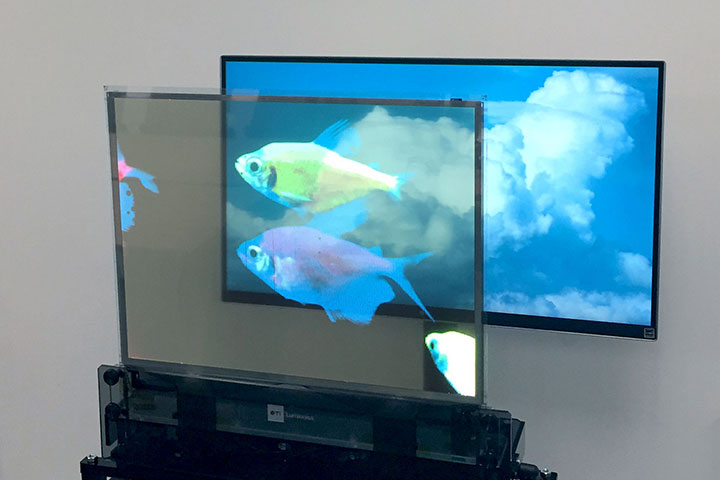
In this climate, there is an ever-present fear that Canada will struggle to compete with the capital and state-of-the-art hardware U.S. companies can promise researchers. One of the concerns expressed by Canadian industry experts interviewed by BetaKit was fear of losing talent.
“There’s a lot of talent and good ideas,” said Juan Felipe Carrasquilla, a faculty member at the Vector Institute working on quantum computing and machine learning. “The challenge is to try to retain [them], and make the whole system work so companies stay here.”
“I think the important thing is to keep the companies Canadian so that they don’t eventually sell to a bigger company,” Carrasquilla continued.
But some experts believe that Canada’s early lead means the country is still set to play an important role in moving the field forward.
The University of Calgary’s Sanders said Canada can continue developing the key building blocks of quantum computing rather than building a universal quantum computer — something D-Wave, which is releasing its next-generation quantum platform in 2020, is already doing. D-Wave promises that its system will include 5,000 qubits and, with high connectivity between these qubits compared to competitor platforms, will require fewer qubits to solve complex problems.
1QBit co-founder and CEO Andrew Fursman said that AI and quantum computing’s journeys in Canada are identical.
“Canada isn’t renowned for building [graphics processing units], but we are recognized for building the methods and applications that harness GPUs to enable machine learning,” he said. “Of course, this opportunity isn’t in the bag for Canada, so we need to continue to invest and push the envelope for Canada to be competitive for generations to come.”
Continued investment will be key to continuing Canada’s lead — something that’s always at risk. Last October, the Toronto Star reported that the Ontario government did not reinvest any operational funding for Waterloo’s Institute for Quantum Computing, which had once received a five-year, $25 million budget established from the previous provincial Liberal government. The federal Liberal government provided $15 million over three years to IQC.
“The worst-case scenario is that some of the interest starts to shift from Ontario to other regions, because of the change or perceived change in support from the government in this area,” Andrew Fursman, CEO of 1QBit, told the Star.
“We can bring in anybody from around the world…if it wasn’t competitive, it means the field isn’t hot enough.”
– Stephanie Simmons, Simon Fraser University
Luckily, Canada’s head start has continued to be a draw for international talent. Maria Schuld, a quantum machine learning developer at Xanadu, was one of the first PhDs in quantum computing, and chose Xanadu to continue developing quantum algorithms for supervised learning. Schuld said that the company’s approach of using continuous-variable (CV) quantum computing hardware is unique: through CV processes, Xanadu can extract features for machine learning that are specific for CV devices.
“CV systems live in infinite-dimensional Hilbert spaces, while qubits live in finite ones. This may give rise to very different flavours of machine learning techniques in the near term,” Schuld said. “Xanadu has an excellent QML team and puts a lot of emphasis on this topic, so I’d say they are one of the strongest in this sphere.”
Overall, researchers and startups here are confident in Canada’s ability to take on world competition. For example, at SFU, Simmons is working on the performance of silicon transistors, which have been shrinking since the 1960s in a way that has allowed computational abilities to grow exponentially. Silicon transistors are impaired by quantum mechanics due to their small size, and Simmons’ group argues that silicon hosts the best qubits in the industry. Her group is working to harness its potential for quantum computing development.
On the concern for retaining talent in Canada as global tech giants make gains in quantum computing, Simmons is frank. “They have to compete with us,” she said. “We have a very livable city [in Vancouver]. We can bring in anybody from around the world…if it wasn’t competitive, it means the field isn’t hot enough. So that doesn’t scare me, it’s something that is a measure of success of the industry.”
Kurji added that investments from angel investors — who can come in at the early stages and contribute cheques in the $500,000 range — could also sustain companies in their early days as they experiment with quantum computing.
Abhi Rampal, founder and CEO of Solid State AI, which uses machine learning on quantum computers to help manufacturers build better products using their datasets, has experienced the funding challenge firsthand. “The Canadian way of thinking is very much like, ‘we will help you if you have money, we will help you if you have succeeded,’” he said. “If I’ve succeeded, I don’t need your help. In the States, they don’t think like that.”
HIGH RISK, HIGH REWARD
Despite the global race in quantum computing and machine learning, the reality is that there hasn’t yet been a practical situation where quantum computing can perform better than a classical computer.
“No provable quantum advantage has been demonstrated yet,” said Sanders.
Like the first Canadian quantum investments 20 years ago, researchers and companies are betting on the fact that quantum computing will change the world, experimenting with approaches that can play a role in the design of a computer. Roger Melko, chief scientist at the Creative Destruction Lab and a faculty member of the Perimeter Institute, worked with a team to successfully hybridize classical neural networks with a quantum device. Quantum computers produce exponential amounts of data, and neural networks can adapt to the data it produces.
“It analyzes and presents to us in a way that we can understand,” said Melko. “This hybridization technique allows us to enhance the current hardware, enhance our understanding of it, and then we can use this hybridized quantum AI system to hopefully design the next iteration.”
The home of companies like D-Wave and 1QBit, British Columbia has recently doubled down on becoming a hub for quantum computing. SFU’s Surrey campus received $17 million from the provincial government last October for an Institute of Quantum Algorithms. The Institute will focus on building quantum computing software and algorithms, and is part of a bigger push to build an innovation corridor between Surrey and the Fraser Valley region.
“Even if it’s in its infancy, we’re able to develop highly-skilled graduates to tie industry needs into curriculum development, into potential business opportunities,” said Anita Huberman, CEO of the Surrey Board of Trade.
And there are areas where quantum computing can have an influence on machine learning without having to use quantum computers; quantum-inspired algorithms is a field that takes the concepts of quantum computing and applies it to classical algorithms. For example, a simulated annealing algorithm mimics nature’s tendency to want to be in the lowest energy state (annealing), doing whatever it can to reach this state. In the algorithm’s case, it chooses random moves, only accepting those that improve the solution.
The direction is clear, but every step forward is still murky. Canadian leaders don’t really know if their bet on quantum computing and machine learning is worth it, but they have a strong hunch — and luckily, they’ve been in this place before.
“This is kind of like the early days of AI, where you just have to play around, you don’t really have proof saying, ‘Oh, this is what’s going to work,’” said Simmons. “If you’re going to rely upon the intuition that [quantum computing] has greater computing capability than our classical supercomputers, you hope that there’s something there right that we can we can use it productively.”
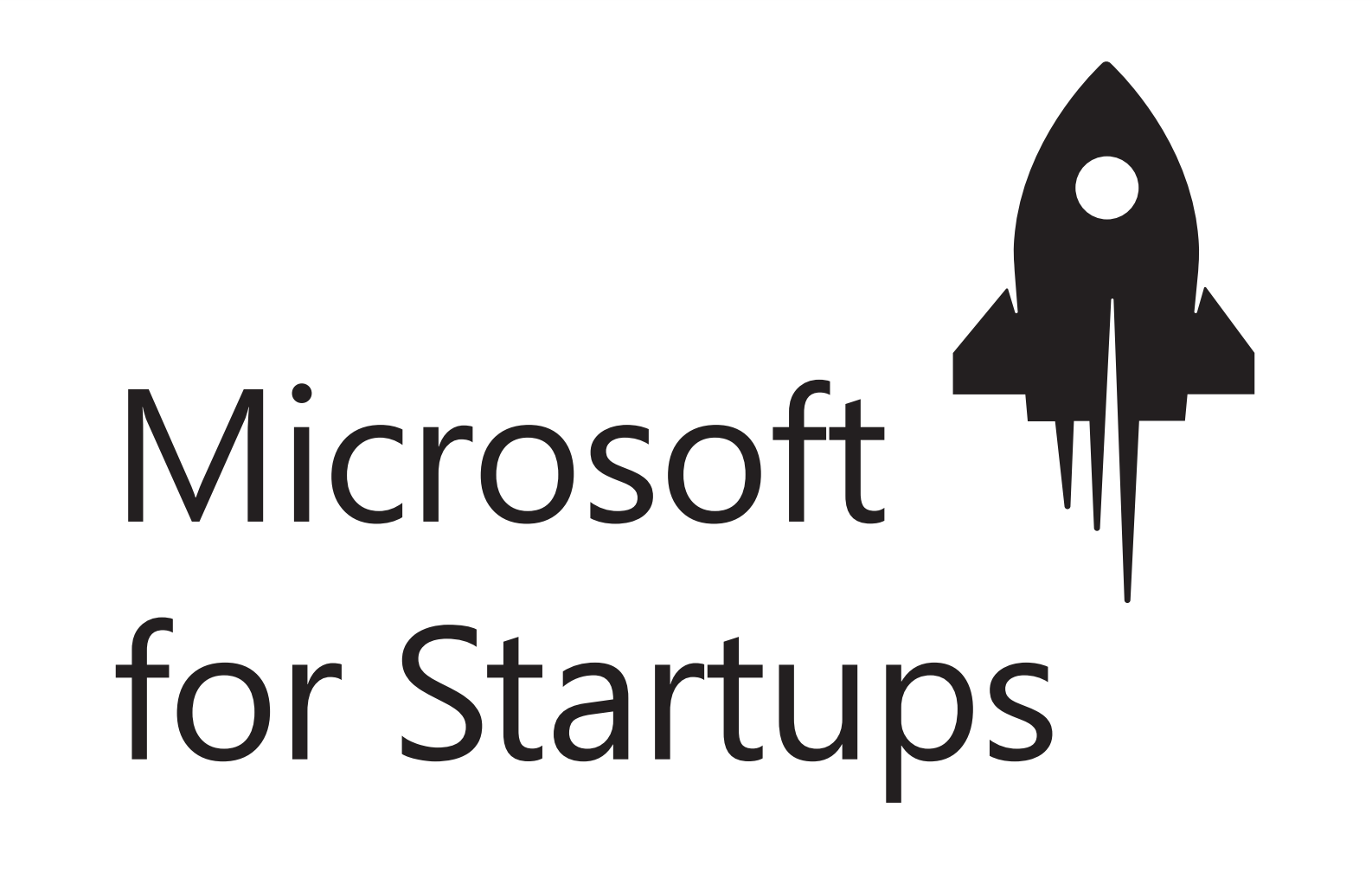
AI Nation is proudly brought to you by Microsoft for Startups.
For AI companies looking to build their first application, land their first customers, or scale to a million users, Microsoft for Startups is here to help.

